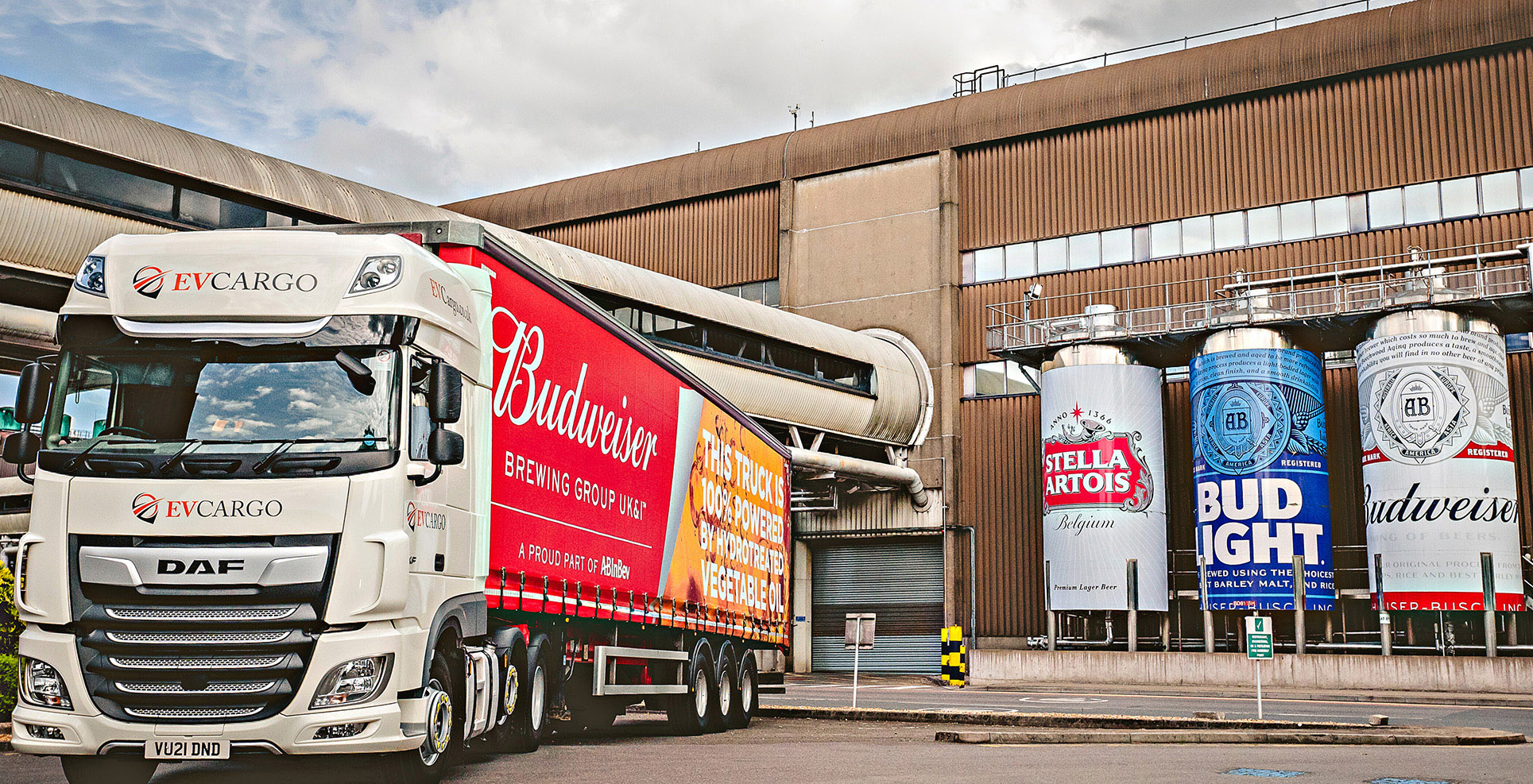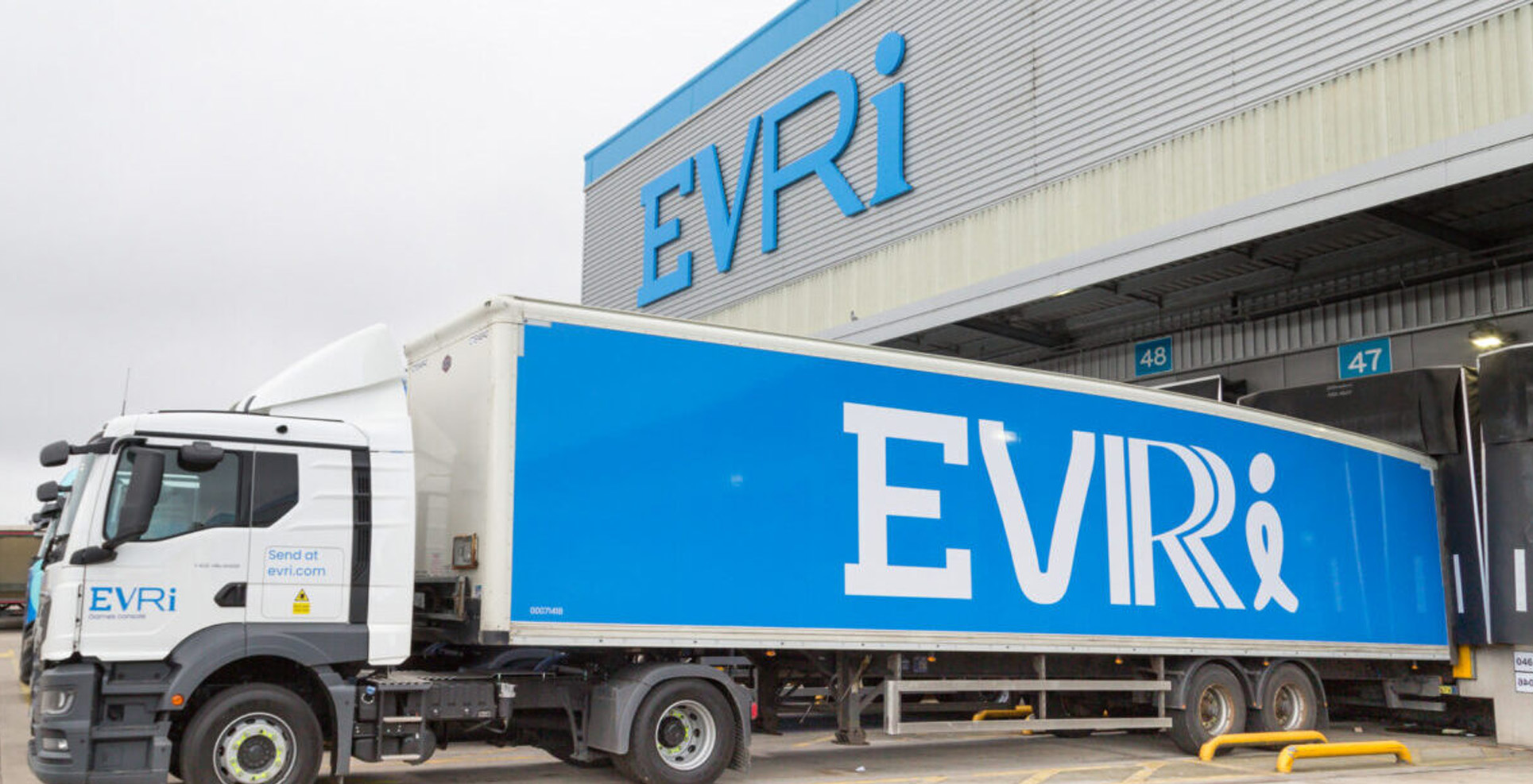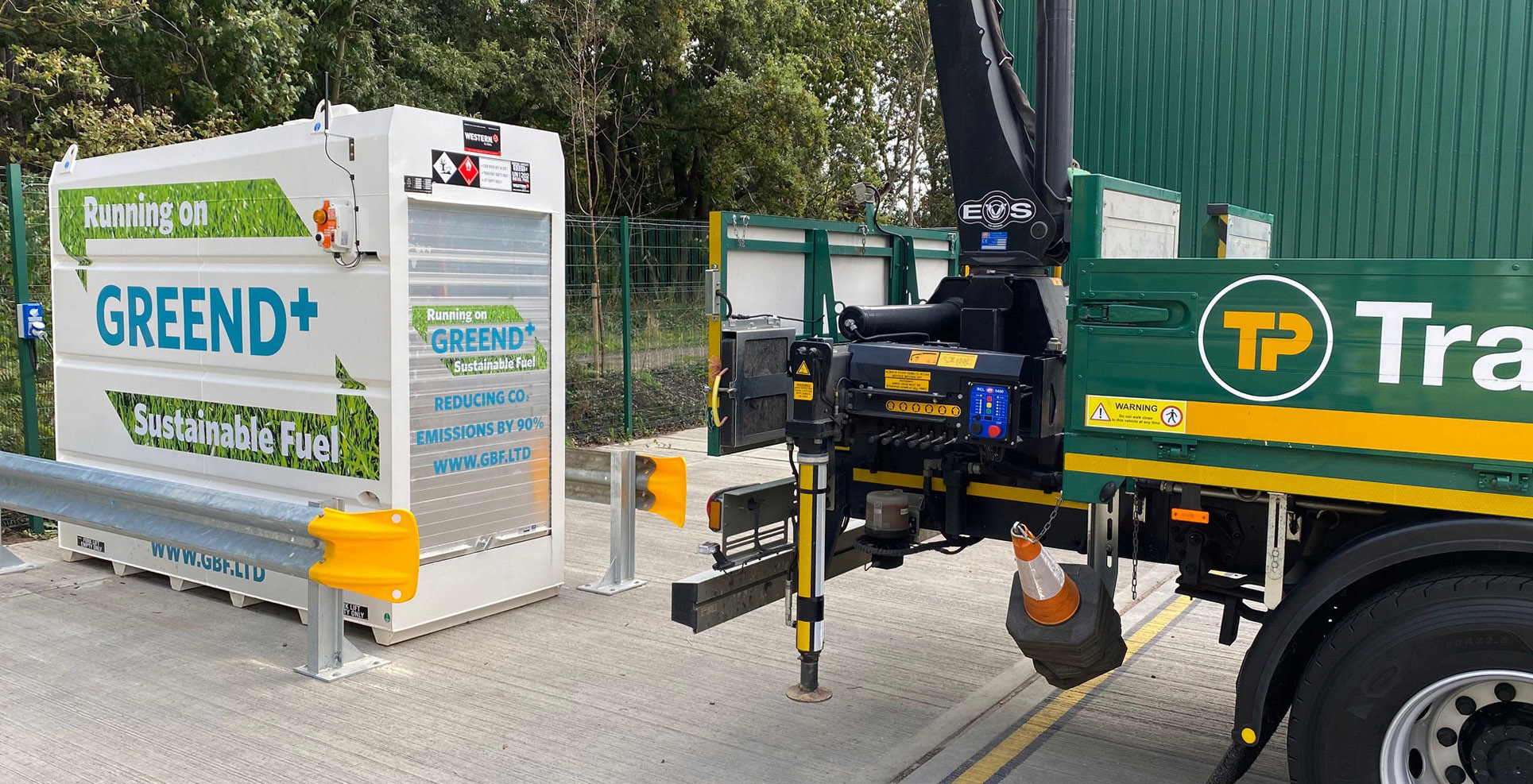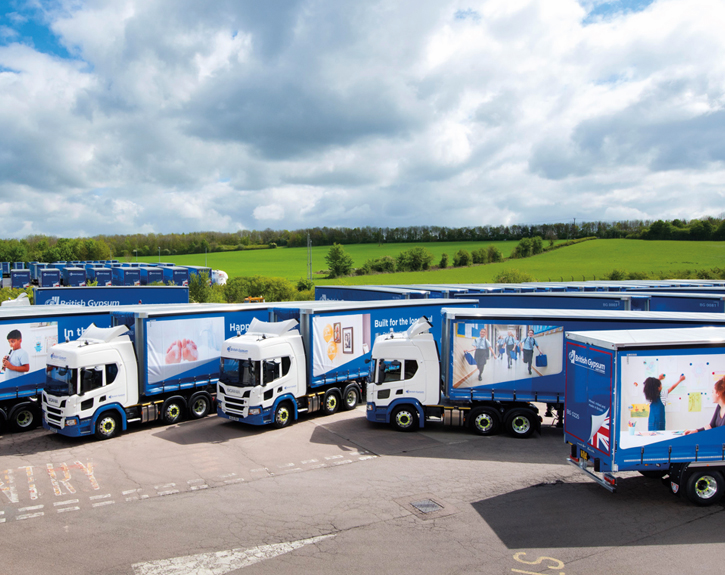Hydrotreated vegetable oil (HVO) – a good choice for your trucks, or wait for electric?
An article discussing HVO’s pros and cons and whether it’s a viable fuel for road transport operators to switch their diesel trucks to. As truck operators scramble to turn green, is switching a fleet to HVO a no-brainer?
This summer’s record 40-degree UK heatwave1 along with the devastating fires across Europe and other parts of the world provided a sobering warning that climate change and various organisations’ endeavours to combat it aren’t just something fashionable but are real and on the proverbial doorstep.
With the perceived aerodynamic properties of a brick in comparison to all manner of slippery cars, it’s little wonder that HGVs are responsible for 16% of greenhouse gas emissions despite only comprising 5% of vehicle road traffic2.
LGVs and HGVs across the UK travelled 39.5% more miles during 2018 compared to in 1998 according to the latest government figures available3, meaning 19.3 billion extra miles just by vans, trucks and lorries. Diesel use by HGVs has remained horizontal during this period and had actually dipped slightly as of 2017, down from 7.38 million tonnes of oil equivalent (Mtoe) to 7.21 million – but soberingly, a fifth (21%) of UK greenhouse gas emissions came from road transport at that point in time, with the figure likely not much different today, while domestic, commercial, agricultural and other emissions fell on the other hand, perhaps to some people’s surprise, explained by the switch from coal to gas and, increasingly, renewable energy. As Drone technology expert Robert Garbett put it in a Motor Transport news article4, “Today, approximately 89% of all goods transported by land in Great Britain are moved directly by road transport, which is one of the UK’s most polluting industries.”
Something had to be done, and while a growing but nevertheless modest number of operators, such as Fox Group5 of Blackpool, have become early adopters of fully electric trucks, they are admittedly still too expensive for many hauliers and others to contemplate – hence why a raft of companies have been trialling alternative fuels including CNG, LNG, hydrogen, and particularly hydrotreated (not to be confused with hydrogenated6, which is a margarine thing) vegetable oil, or HVO for short, across some or all of their fleets. Not only are they having to address environmental targets – they are also facing increased public and indeed commercial appetite and pressure to see companies making changes, especially from younger generations.
What is HVO, or hydrotreated vegetable oil, in the truck context?
Volvo Trucks’ document called ‘Alternative Fuels For Trucks: A Guide To The Pros And Cons’7 describes HVO as “essentially a second-generation biodiesel that can be produced from a wider range of materials” – which often means waste products.
HVO is, in basic terms, produced by adding hydrogen to vegetable oil, and the resulting fuel mixture is very similar to diesel. Leading global power solutions company and purveyor of all manner of engines and motors, Cummins, goes into more detail in its thought leadership piece7a by explaining that hydrotreated vegetable oil can be processed using used cooking oil, is interchangeably referred to as ‘renewable diesel’ or ‘green diesel’, and that all of its source products are considered to be ‘pariffinic hydrocarbon fuels’.

How is HVO different to diesel and when did it become a thing?
Cummins’ article brings out that HVO even smells less than diesel, owing to its 7% lower fuel density and its reduced sulphur and general aromatic constitution. HVO can not only be used to power trucks but is also viable for fuelling generators thanks to its higher oxygen stability.
For those interested in the science, the website HVO Fuel UK7i explains that “diesel fuel made from hydrotreatment is different from biodiesel, which is created through the esterification process.”
A paper from European Technology and Innovation Platform (ETIP) Bioenergy8 in 2020 reckons that ‘the first HVO refinery in Europe was invested by Neste in 2007’ and places it as the third most popular alternative fuel around the world, behind ethanol and FAME (fatty acid methyl ester).
The blog BioRefineries8i asserts that “the term HVO emerged in last decade” (2000-2010) and interestingly puts forward the view that the acronym is no longer used accurately, because it was originally associated with vegetable oils as its source, whereas industrial waste origins are now commonly used. The article explains that HVO meets diesel requirements EN 15940, EN 590, EN 16734, EN 16709, and ASTM D975.
The Nordics, otherwise known as Scandinavia, is usually cited as the thirstiest fan of HVO, which is perhaps unsurprising because that part of the globe leads the way8a when it comes to electric car adoption, with Norway, Iceland and Sweden consistently appearing in the top-5 table of EVs per capita ordered by country.
Amy Conway of Sandvik Mobile Crushers recently commented that “hydrotreating of vegetable oils (HVO) is a modern way to produce very high-quality renewable diesel fuels without requiring any changes to fuel logistics, engines, or exhaust after-treatment devices”, so it does represent a compelling proposition for an increasing number of truck operators. Based in Northern Ireland, where Tiger Trailers is selling and leasing an increasing number of articulated trailers, Sandvik has been collaborating with Finning to offer its crushers in HVO-ready variants8b.
Which road transport hauliers are using HVO currently?
A rapidly-growing number of UK truck operators dip their toes into the HVO waters each month and many have already developed an inseparable bond with the alternative HGV fuel. Adopters of HVO come from all corners of road transport and beyond, from bin lorries and last-mile urban logistics rigids, to articulated tractor and trailer combos of all sizes, through to trains and even cranes if the wider landscape is also considered.

Howdens9, a leading kitchen joinery supplier and a regular curtainsider customer of Tiger Trailers, recently went to press stating that HVO is a vital ingredient in its sustainability strategy and intends to have committed to 350,000 litres of the greener fuel by the close of 2022. Gareth Sterland, the firm’s Head of Transport, commented to Motor Transport magazine that “the move towards HVO, LNG and electric vehicles demonstrates our commitment to CO2 reduction across our expanding fleet and network”.
EV Cargo10, another major Tiger curtainsider customer with approaching 700 of the manufacturer’s trailers on its logistics fleet, made a big splash earlier this year when it announced that 25 of its tractor units on the Budweiser Brewery Group contract at the Magor brewery in Wales are to see diesel replaced by HVO. Just like Howdens, EV Cargo cite that hydrotreated vegetable oil can enable them to achieve a swift reduction in CO2 emissions by over 90%, as they implement their supply chain decarbonisation and net zero strategy plans.
Howard Tenens Logistics11, who were one of Tiger Trailers’ first customers and went on to buy a number of longer semi-trailers (LSTs) from the Cheshire-based OEM, has switched all HGVs at its Andover depot in Hampshire from diesel to HVO in a move that it anticipates will deliver a 2,873-tonnes of CO2 well-to-wheel saving each year and will reduce the haulier’s carbon footprint by 17%.

Evri, the parcel delivery company previously called Hermes UK, has begun to trial Green D+ HVO at its Brooklands distribution centre in Surrey, focussed on its middle-mile fleet, encouraged by the ability to mix HVO fuel with diesel in the same tank without any concerns12. Evri’s Head of Fleet, David Landy, who recently received an initial 168 twin-axle box van dry freight articulated trailers from Tiger to run from its new sortation hub in Barnsley, which is the largest in the world, explained to the media that Green D+ HVO is more difficult to obtain due to its limited supply, but they are hoping it will prove viable alongside its first-mile, collection and trunking vehicles that run on CNG (compressed natural gas). Tiger Trailers also incidentally manufactures the skeletal trailers and other articulated vehicles operated by CNG Fuels to supply a wide range of end users including Evri.
Earlier this year, XPO/GXO’s Ray Taylor, who managed the order that saw Tiger Trailers manufacture and supply several hundred lightweight EN 12642 XL curtainsiders to British Gypsum during the summer of 2019, shared on LinkedIn that the plaster board and ceiling solutions provider is gradually moving its regional truck fleets over to HVO, starting with 58 tractors shared with Jempsons Haulage at Robertsbridge in Sussex, which are now running on HVO Green D+ supplied by the firm Green Bio-Fuel12a.
Elsewhere, other fleets introducing HVO include:
- Parcel carrier Yodel has switched its Terberg yard shunter fleets at three sites13 from diesel over to HVO, with support from Certas Energy, the leading off-grid and commercial fuel supplier in the UK in a market joined by NWF Fuels, both firms being local to Tiger in Cheshire and the North West.
- Truck tractor unit manufacturer DAF14 showcased a skip-loader variant of its Euro-6 compliant LF series 230 FA 4×2 at Freight In the City and explained to showgoers that despite HVO being priced between 5% and 10% more expensively per litre than diesel, it’s more flexible and practical compared to an electric truck, which wouldn’t be suitable for tramping duties, with EV HGVs not currently equipped with any kind of ‘range extender’ backup power once their battery electricity supplies run out. DAF Trucks’ Marketing Manager, Phil Moon, regularly promotes15 HVO as an ideal ‘drop-in’ fuel not sourced from fossils but from waste products, hence presenting a wholly viable green option for truck-makers who have been set a governmental target of achieving a 15% carbon saving by 2025 compared to 2019/20 levels.
- The CEO of builders’ merchants Travis Perkins16 has hailed their HVO trials as ‘really successful’ and they have now begun rolling the greener fuel out to many of their depots. Their press release describes how HVO, which they also procure from Green Biofuels Ltd just like British Gypsum, reduces particulate matter (PM) by up to 85%, which is good news for pedestrians, cyclists, children, the elderly and others who have health issues, at a time when the UK’s air quality remains under the spotlight ahead of, hopefully, hitting 2030 targets.
CEVA Logistics is another 3PL/4PL tackling truck fleet decarbonisation and switched all of its Doncaster fleet to HVO in May 2021 in a commendably early move towards becoming carbon neutral. - Over in the refrigerated, temperature-controlled or ‘reefer’ corner of the articulated HGV semi-trailer manufacturing marketing, in which Tiger plays a part with its Siberian range, Thermo King’s fridge units17 can now be powered by HVO as a drop-in alternative fuel to diesel, for operators looking to cut their carbon footprint but for whom electric fridges aren’t yet feasible.
Advantages or ‘pros’ of HVO
Volvo Trucks’ aforementioned whitepaper document called ‘Alternative Fuels For Trucks: A Guide To The Pros And Cons’ cites advantages to HVO as including:
- diesel-matching performance
- instant drop-in for Euro 6 compliant truck tractor cab units
- efficient use of waste products
- an environmentally friendly and renewal fuel source
- longer shelf life than biodiesel
- more attractive wheel-to-wheel carbon emissions than biodiesel
- better for use in cold weather/temperatures in winter
- the ability to use HVO in vehicles in all temperatures without requiring any infrastructure modifications.
A Commercial Fleet article18 from late 2022 usefully and encouragingly explains: “Most alternative fuels come with baggage; everything from charging points and specialised dispensers to extra pipework and unique storage facilities. All this infrastructure costs money, takes up space and requires extra staff training. The beauty of running on 100% hydrotreated vegetable oil (HVO) is that none of this is required. An aromatic-free paraffinic diesel that can be used as a drop-in substitute for mineral diesel, it can be stored in the same bulk tank and used in exactly the same way, say its proponents.”

Prema Energy18a reckons that “HVO overcomes biodiesel’s sustainability setbacks” reflecting the “tarnished reputation” the latter has on ethical and environmental grounds, with it releasing greenhouse gases, and requiring vast swathes of land previously earmarked for food – often entailing deforestation.
The downsides of HVO:
Cummins’ previously cited thought leadership piece says that a primary disadvantage or ‘con’ of HVO is that global supply chain challenges and demand outstripping supply while it’s still in its relative infancy mean that hydrotreated vegetable oil is pricier than many other alternative fuels.
David Landy’s comments in the Evri article in Motor Transport back this notion up when he says: “Green D+ HVO isn’t widely available and there’s a limited supply so it isn’t possible to run our entire fleet from this fuel but, subject to this trial, we believe it will be a viable option to help support our sustainable delivery commitments.”
Certas Energy asserts that HVO-buying fleets can be faced with inconsistent quality19, while electric and self-driving or autonomous vehicle pioneers Einride paint a perhaps predictably scathing argument against HVO, which they describe as a disingenuous promise fleets are being fooled by19a. “Sound a bit too good to be true? It is. HVO is palm oil”, states their 2020 article, which then comments that its home country of Sweden, one of the first to widely adopt HVO, is therefore contributing to deforestation, animal rights issues and even, ironically, increased ozone and particulate matter pollution, simply through its production – let alone the transportation of hydrotreated vegetable oil from source countries like Malaysia and Indonesia. Einride’s one-sided piece, which quotes 23% of CO2 emissions across Europe as coming from road transport, labels HVO as ‘disingenuous greenwashing’ and states that electric trucks are the only way forward. They would say that, though, as this is their area of specialism and sales, along with the freight mobility platform they have developed.
The future of HVO and whether it’s a no-brainer
Independent Commodity Intelligence Services (ICIS)20 even makes the bold assertion that the “rise of HVO is to be the downfall of traditional biodiesel in Europe” before going on to say that “it is likely that the rise of HVO use will lead to a decrease in traditional biodiesel demand and therefore biodiesel production” The organisation does balance this, though, by commenting: “this is very much a long term plan however. While HVO production and use is growing in the region, it is not yet produced at a level that could meet current biodiesel capacity in Europe.”

Girteka Logistics believes that “HVO is in limbo”21 as it has to compete with many other alternative fuel types such as CNG and LNG, along with other industries such as food production, in a tug of war. One of its articles references that HVO usage typically reduces AdBlue consumption and expense by 10%, however, and concludes that HVO nevertheless “provides an excellent short-term solution for road transport operators and their customers to reduce emissions”, which Tiger would concur with.
With ever tighter truck CO2 emissions regulations on the way when the Euro 7 standard arrives, and with the eventual advent of more affordable and longer-range all-electric trucks, though, HVO suppliers and other advocates will need to continue working hard to ensure that its appeal prevails in these ever-changing times. For now, though, it seems right after considering the various arguments, that more and more fleets are turning to HVO as a short-term solution which, although perhaps not as green as touted, is certainly more environmentally friendly than bog-standard diesel.
© Tiger Trailers Limited, 2022. All Rights Reserved.
















